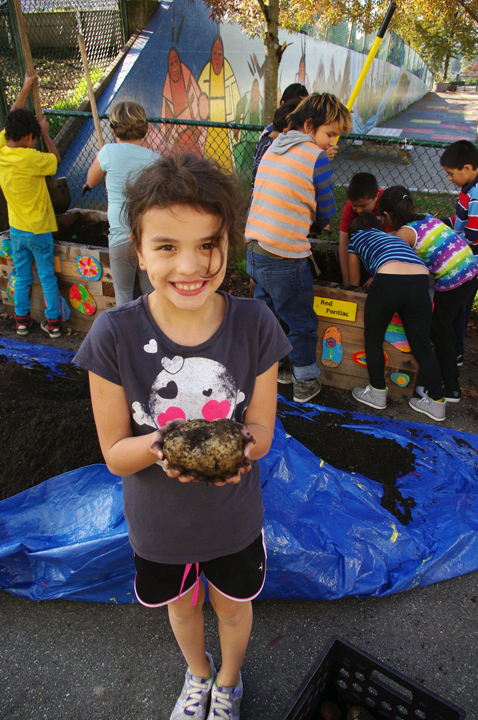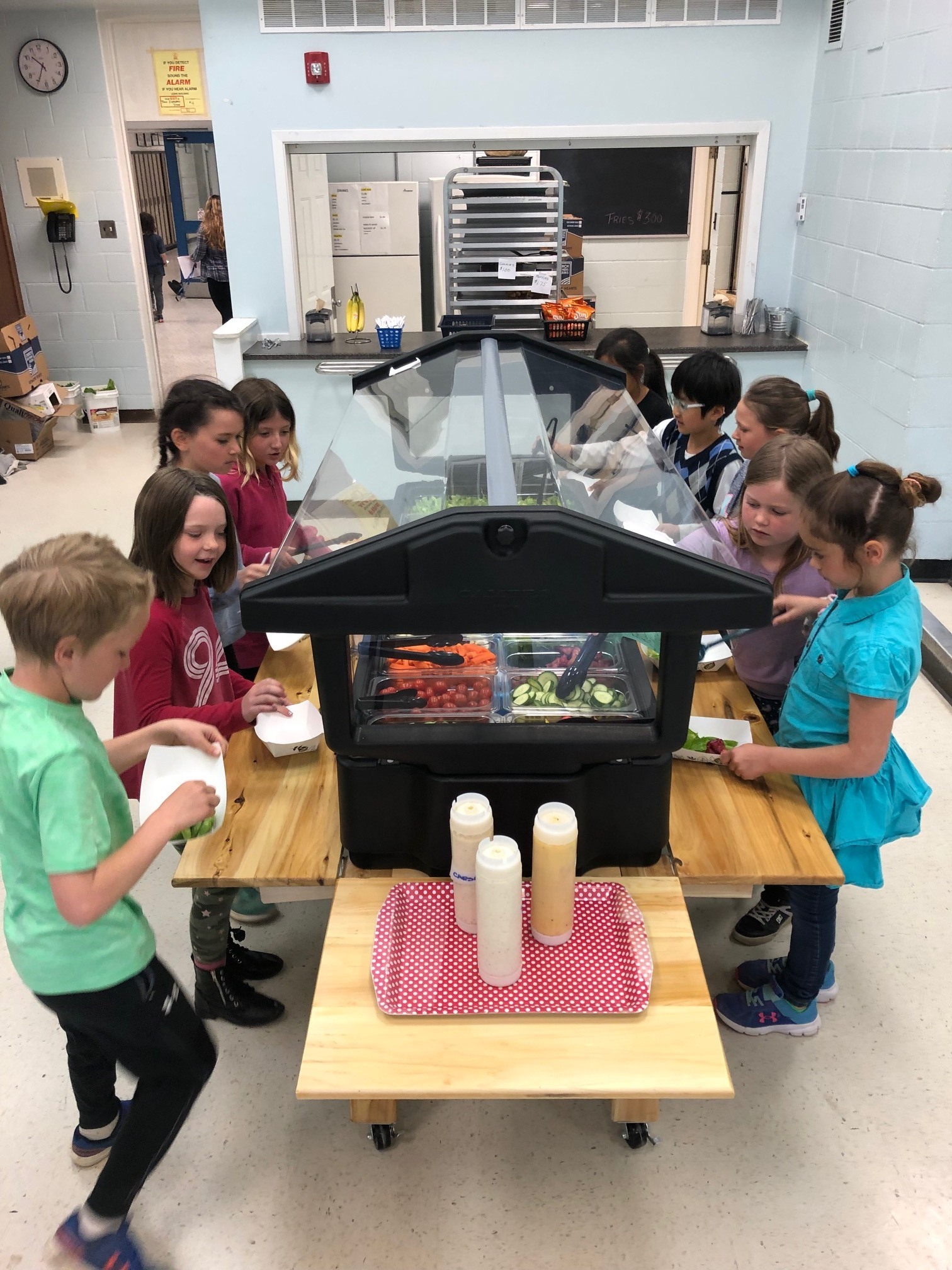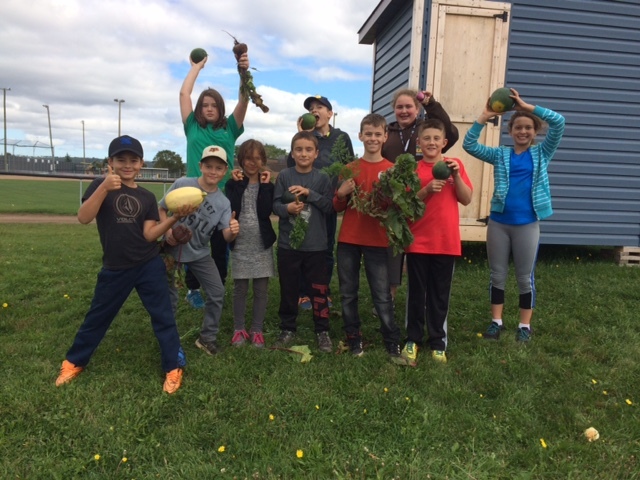WHOLE KIDS FOUNDATION (WKF): What is Farm to Cafeteria Canada’s approach to advancing children’s nutrition and wellness?
Farm to Cafeteria Canada (F2CC): F2CC envisions meaningful school food environments where all students feel welcomed and nourished in body, mind and spirit. We believe that food is a powerful connector, both to place and to others. Encouraging curiosity through food and food systems, and fostering these connections, allows children to learn how the health of their community and the planet is connected to their own health and wellness.
The Farm to School Approach: At F2CC, we grow the capacity of diverse school communities across the country to foster vibrant school food systems by connecting students to food and the local systems that produce it. We do this by focusing on three elements: 1) providing access to healthy* local food at school; 2) engaging students in hands-on food literacy; and 3) connecting students to their broader communities, including those involved in their local food system. We refer to this as the “farm to school” approach, or, to better reflect the diversity of local and traditional foods that can be enjoyed in schools from coast to coast to coast, the “local food to school” approach. Evaluations of our programs have demonstrated that, when a farm to school approach is taken, students consume more healthy food, have more food literacy skills, have more knowledge about gardening, agriculture and the environment, and are more excited about healthy eating. At a school level, schools also purchase more local food, increase their capacity to grow food, establish and strengthen partnerships with the broader community and have an overall greater sense of vibrancy.
*We understand “healthy food” can mean different things to different people. We define it as food that provides the nutrients needed to maintain health, feel good, and enjoy life, and we believe that it should consider people’s physical, mental, emotional and spiritual needs, including being culturally appropriate and responsive.









